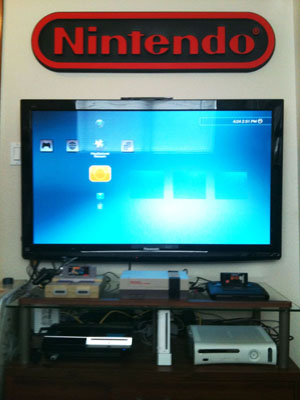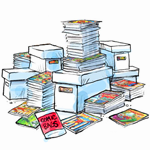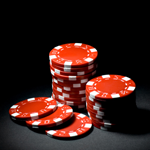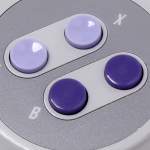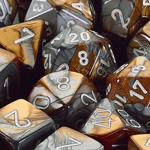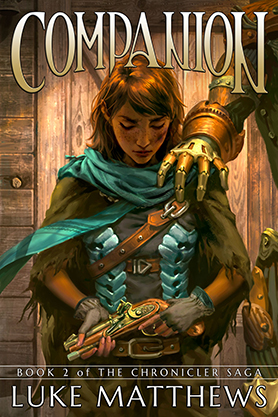I completely missed my blog post yesterday. I’ll see what I can do about getting two out today, but I make no claims or promises.
Yesterday my house was a mess, and I had people coming over for my weekly poker game. It may seem like a trivial thing to prioritize over my book or my blog, but poker is an extremely important part of my life, and one that I treat with a lot of respect. I try to make my poker room the best environment for the game as possible because I take pride in the fact that people enjoy playing at my place, which is what took up the time that I should have spent writing.
I know a lot of people see poker as nothing more than gambling. That’s unfortunate because, while it has an element of risk to it, the amount of skill involved in poker can far outweigh the luck. That’s an argument I could spend an entire blog post making, but I’m going to set that aside right now so I can talk about the topic of today’s post: the effect poker has had on my life.
Many years ago, I had a temper problem. A pretty bad one. Not to the degree of being violent toward other people (at least not physically), but mostly toward inanimate objects. Trivial things would get under my skin, and send me flying off the handle at the dumbest times. My previous relationship (prior to my marriage) exacerbated that situation ten-fold, because my ex-girlfriend knew exactly what buttons to push to set me off, and kept her thumbs firmly planted on them. There were a number of emergency door replacements and strategically placed pictures in our old apartment in the aftermath of my frustration.
Unfortunately, this trend continued even after I was in a wildly better relationship. Rather than identify the problem and work on setting it aside, I had reoriented my mindset around what was acceptable for me to destroy – a place no human thought process should ever go, mind you – so I was no longer punching holes in doors, but frequently breaking things that I owned or, in one case, bending the shit out of the steering wheel of my car.
In 2004, I was introduced to poker. A friend of mine who had been into the game for quite some time taught me how to play at a 4th of July picnic that year and, being a pretty hardcore gamer all of my life, I took to it immediately. I had a decent eye for the strategy of the game, but it would be quite a while before I developed the temperament for it.
My first few years as a player my temper translated right into my play, and I was a complete tiltbox. I had spent an inordinate amount of time learning the intricacies of poker strategy, but one bad beat would throw it all out the window and send me spiraling into a spitting, cursing oblivion. One night, about a year after I started playing, I was heads up with the guy who ran our weekly poker night. To say that this guy was bad at poker would be like me writing an entire blog post explaining the reasons why humans should breathe. You know, air. This heads up match lasted almost an hour and a half (a long time with our structure back then), and on eight separate occasions I had him all-in and had the best hand, and all eight times he sucked out on me and put me out in second place.
My brain exploded. There are very few times in my life that I’ve ever been so angry about something so insignificant. I came very close to flipping his poker table over, and stormed out of his house, slamming his door behind me so hard I almost knocked his entryway windows out of their frames. And that was only the beginning of a tirade that lasted the rest of the night.
It was that night – coupled with a very serious conversation with my wife the next day – that honestly changed my life forever. What I didn’t explain earlier was that my temper, having been ignited by my ex-girlfriend, should have been extinguished – or at least dampened – once that relationship was over. I can very specifically trace my temper issues back to that one woman (mixed with a high volume of my own immaturity), but once she was out of my life, I either couldn’t or simply didn’t work on a way to bring it into check.
And I came closer than ever to losing my wife because of it.
That night was the trigger for an interesting type of soul-searching mission. I was desperately trying to find a way to get my temper in check without the use of drugs or a therapist. So I buried myself in poker.
Does that sound odd? It shouldn’t. The disciplines involved in being a good poker player include strategy, odds, reading players, and understanding your place at the table. Underpinning all of that, though, is self-discipline. The most important aspects of being a great poker player are not rooted in understanding the mechanics of the game, but instead understanding yourself and being able to remain in control at all times.
During this delve into the game, I read more poker books than I can count. I studied strategy on online sites, talked poker with friends constantly, and was playing some form of poker literally every single day of my life. If I wasn’t playing a home game, I was making trips to a local card room or playing online. And during this entire process I was learning two very important skills: how to objectively identify flaws in my own gameplay (including strategic errors AND mental and emotional lapses), and how to control my emotions.
Poker is a roller coaster of a game. Playing against terrible players is the best way to make money, but it’s also the most frustrating thing in the world. Bad players spend most of their time making the wrong moves, but that little bit of luck sometimes brings them out on top. You can do everything right, and still get screwed for it. In the long run it all evens out, but in the moment it’s fuck-all aggravating. The good players – the truly good players – are the ones who can let it slide off their back and not affect their play.
I’ve played against a lot of bad players. At that time, when I was playing daily, it was pretty much constant. There is no better immersion course in emotional control than playing $10 sit-and-go’s online, or sitting down at a $2/$4 table at a shitty local cardroom. Over the next year, I focused so hard on learning how to not let bad beats and crappy suck-outs affect my game, that I was simultaneously teaching myself how to let other things roll off my back, and keep my emotions check away from the poker table. And it wasn’t always a conscious effort. Sometimes I’d find myself starting to get frustrated by something, and feel myself putting it aside and telling myself not to let it bother me, and it was only in a moment of clarity that I identified what I was doing and where it had come from.
Never in my life have I found a better lesson in prioritizing the things that affect me on a day-to-day basis. Learning how to set aside stupidity I could not control in a poker game shined a spotlight on all of the things that I was letting under my skin outside the game, and taught me how to diminish their importance and learn what truly mattered. In the process, I was also learning how to identify my own faults and determine courses of action to fix them – starting with my temper.
It took a long, long time. Years, in fact. Along the way, I made some pretty big mistakes. Unlike the years before, though, I knew now how to see those mistakes for what they were, and admit to myself that a solution was needed. Admitting my faults to myself allowed me also to admit them out loud, which went a long way in saving quite a few of my friendships. And all along, I was chipping away at the foundations of my shitty temper until it finally fell away.
I’m not perfect; I still get pissed off about things. Only now, it usually doesn’t last very long, and it slides out of my consciousness rather quickly. For me, anger was a destructive force that cost me friends and almost destroyed my marriage. The disciplines I’ve learned from playing poker – both strategic and emotional – have translated into almost every aspect of my everyday life. Every skill I’ve taken away from poker has had a quantifiable impact on my life, but none so significant as allowing me to live without having childish temper tantrums.
It may sound sappy or cliche, but poker saved my marriage, and changed my life.




